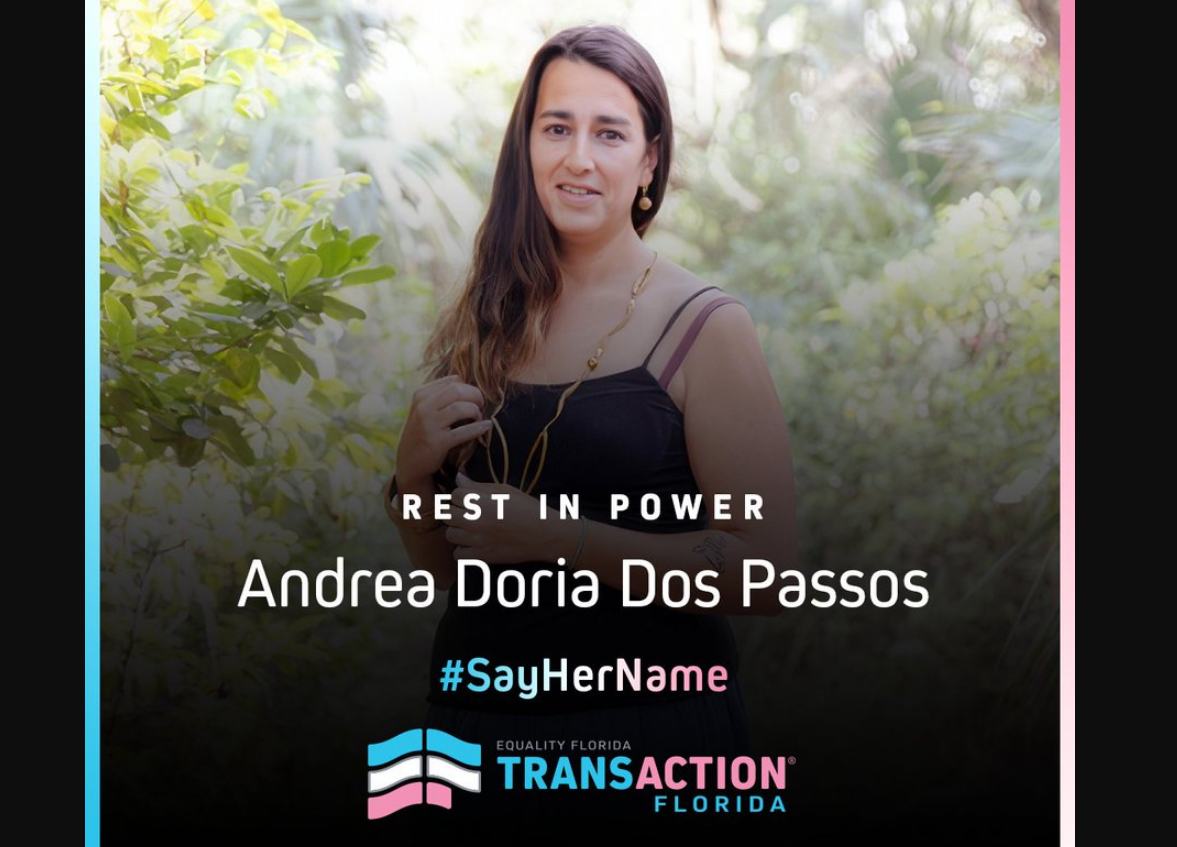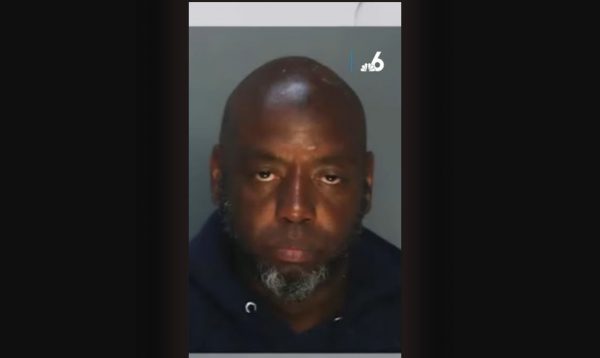Florida
Fla. rule would effectively ban gender-affirming care for minors
State surgeon general asked for regulation

The Florida Board of Medicine and Board of Osteopathic Medicine Joint Rules/Legislative Committee Friday advanced a rule that would effectively ban gender-affirming care for minors in the state.
The policy, which would likely block a minor’s access to puberty blockers, hormone therapies and surgeries — a rare intervention for transgender youth — will now head to the full the Board of Medicine and Board of Osteopathy for finalization and a vote.
It came after the Florida Surgeon General Joseph Ladapo in June asked the board to establish a standard for “complex and irreversible” gender-affirming care treatments. Ladapo recommended against certain pharmaceutical, non-pharmaceutical and surgical treatments for gender dysphoria. Puberty blockers, a form of gender-affirming care, are reversible.
Major medical organizations, such as the American Academy of Pediatrics, recommend gender-affirming care for trans and nonbinary youth. The group, in a statement, said it “strongly oppose[s] any legislation or regulation that would discriminate against gender-diverse individuals, including children and adolescents, or limit access to comprehensive evidence-based care which includes the provision of gender-affirming care.”
Still, Ladapo called the scientific evidence supporting gender-affirming care “extraordinarily weak.”
Republican Gov. Ron DeSantis, who is likely to run for president in 2024, holds tremendous power over the board. Equality Florida, a statewide LGBTQ advocacy group, said the board was stacked with “right-wing extremists” and “subverted into weapons against LGBTQ Floridians.”
During the meeting, the committee heard from scheduled presenters meant to act as experts on gender-affirming care and members of the public. Before the meeting, one of the experts, Dr. James Cantor, was quietly removed from the agenda after it was revealed that he advocated for pedophiles to be included under the LGBTQ umbrella, according to Media Matters.
Oxford University sociology professor Michael Biggs, who did speak to the board, has posted transphobic tweets in the past, according to the Oxford Student, the college’s student newspaper.
LGBTQ activists and state representatives called into question the fairness of the speakers. According to Florida Planned Parenthood Action, two state representatives, Democrats Anna Eskamani and Carlos Smith, “begged” the board to let public comment continue.
“It is totally unacceptable for a public Board to permit only speakers who agree with the board members’ position to testify, and then refuse to permit others from the public with a different perspective to speak,” tweeted Florida state Rep. Ben Diamond, a Democrat.
After the board cut off public comment, the crowd began to chant: “Let them speak.”
Smith called the meeting a “sham,” adding: “They put all the speakers from out of state and out of the country who agreed with them first. When they ran out of people on their side, they cut off public comment from Floridians OPPOSED to the politicization of gender affirming care.”
“Just disgusting,” tweeted Jack Petocz, a political strategist for Gen-Z for Change.
Just disgusting. https://t.co/oeKQx6y2cP
— Jack Petocz (@Jack_Petocz) October 28, 2022
The board also heard from several so-called “detransitioners” who spoke in favor of the rule.
However, those who receive gender-affirming care rarely decide not to continue with treatment. A recent study published in “The Lancet” found that 98 percent of people who had started gender-affirming medical treatment in adolescence continued to use gender-affirming hormones at follow-up.
“It needs to be repeated without end: gender-affirming care is lifesaving care,” said Equality Florida Transgender Equality Director Nikole Parker.
Florida
Federal judge blocks Fla. trans health care ban and restrictions
Republican Gov. Ron DeSantis plans to appeal ruling

BY JACKIE LLANOS | Florida’s ban on puberty blockers and hormone replacement therapy for transgender minors and restrictions for adults are both unconstitutional, a federal judge ruled Tuesday.
U.S. District Judge Robert Hinkle, who presided over the case in Tallahassee, sided with the plaintiffs in the class action — parents of trans minors and trans adults — who argued the measure violated the U.S. Constitution because it solely targeted trans people.
“The federal courts have a role to play in upholding the constitution and laws. The state of Florida can regulate as needed but cannot flatly deny transgender individuals safe and effective medical treatment — treatment with medications routinely provided to others with the state’s full approval so long as the purpose is not to support the patient’s transgender identity,” Hinkle wrote.
Those restrictions came into place following Gov. Ron DeSantis’ approval of Senate Bill 254 in May 2023 and promulgation of rules from the Florida Board of Medicine and Florida Board of Osteopathic Medicine enacting that law. Those boards and Florida Surgeon General Joseph Ladapo were named as defendants.
The measures banned minors’ use of puberty blockers and hormone replacement therapy, common treatments for gender dysphoria. Additionally, the law said only physicians, psychologists, and psychiatrists could treat adults seeking gender-affirming care, with the added requirements of frequent in-person visits, tests, and authorization through a consent form that contained false information about the harms of hormone replacement therapy.
However, the law didn’t impose the same restrictions on cisgender women needing to take testosterone or cisgender men needing to take estrogen.
Appeal incoming
The state plans to appeal the ruling, said Jeremy Redfern, press secretary to DeSantis. An appeal would go to the 11th U.S. Court of Appeals.
“Through their elected representatives, the people of Florida acted to protect children in this state, and the court was wrong to override their wishes,” Redfern wrote in a statement to Florida Phoenix.
“We disagree with the court’s erroneous rulings on the law, on the facts, and on the science. As we’ve seen here in Florida, the United Kingdom, and across Europe, there is no quality evidence to support the chemical and physical mutilation of children. These procedures do permanent, life-altering damage to children, and history will look back on this fad in horror.”
Redfern wrote that the state would continue to “fight to ensure children are not chemically or physically mutilated in the name of radical, new age ‘gender ideology.’”
In his 105-page ruling, Hinkle noted that “there were no complaints from patients, no adverse results in Florida, just a political issue.”
However, the ruling does not lift the state ban on gender-affirming surgery for minors and restrictions on surgery for adults. That’s because the plaintiffs didn’t challenge the statutes relating to surgery for minors, and the adult plaintiff had not sought surgery and so lacked standing to challenge those restrictions.
Relief for plaintiffs
Plaintiff Gloria Goe (they used pseudonyms to protect the privacy of their children) is the mother of an 8-year-old (at the opening of the case) trans boy. During the opening day of the trial on Dec. 13, she testified that she feared her son would be swallowed by depression if forced to go through puberty without medical treatment.
“This ruling lifts a huge weight and worry from me and my family, knowing I can keep getting Gavin the care he needs, and he can keep being the big-hearted, smiling kid he is now. I’m so grateful the court saw how this law prevented parents like me from taking care of our children,” Goe wrote in a press release.
Attorneys with GLBTQ Legal Advocates and Defenders, Human Rights Campaign Foundation, National Center for Lesbian Rights, Southern Legal Counsel, and the Lowenstein Sandler law firm represented the plaintiffs.
Hinkle compared the discrimination trans people face nowadays to racism and misogyny.
“Some transgender opponents invoke religion to support their position, just as some once invoked religion to support their racism or misogyny,” Hinkle wrote. “Transgender opponents are of course free to hold their beliefs. But they are not free to discriminate against transgender individuals just for being transgender. In time, discrimination against transgender individuals will diminish, just as racism and misogyny have diminished.”
Editor’s note:
In a statement made to the Los Angeles Blade after Tuesday’s rule, Shannon Minter, the legal director for the National Center for Lesbian Rights said:
“This decision is important because is the first federal court to rule on a law restricting healthcare for transgender adults and because it finds that Florida’s laws are plainly based on anti-transgender bias, not science. This victory shows that we can and must keep fighting these dangerous laws, notwithstanding the deeply flawed rulings of some conservative appellate courts.
Judge Hinkle ruled in favor of the transgender plaintiffs in this case even after the negative 11th Circuit ruling that reversed our initially successful challenge to a similar ban in Alabama. He was able to do so because the evidence showing that these laws have no medical justification and are rooted in false stereotypes and bias was so strong. This is a huge victory, and one that shows that we can win these battles even in red states.”
******************************************************************************************

Jackie Llanos is a recent graduate of the University of Richmond. She has interned at Nashville Public Radio, Virginia Public Media, and Virginia Mercury.
******************************************************************************************
The preceding article was previously published by The Florida Phoenix and is republished with permission.
The Phoenix is a nonprofit news site that’s free of advertising and free to readers. We cover state government and politics with a staff of five journalists located at the Florida Press Center in downtown Tallahassee.
We’re part of States Newsroom, the nation’s largest state-focused nonprofit news organization.
Florida
Homeless transgender woman murdered in Miami Beach
Andrea Doria Dos Passos attacked while she slept

Gregory Fitzgerald Gibert, 53, who was out on probation, is charged with the second-degree murder of 37-year-old Andrea Doria Dos Passos, a transgender Latina woman who was found deceased in front of the Miami Ballet company facility by a security guard this past week.
According to a Miami Beach Police spokesperson the security guard thought Dos Passos was sleeping in the entranceway around 6:45 a.m. on April 23 and when he went to wake her he discovered the blood and her injuries and alerted 911.
She was deceased from massive trauma to her face and head. According to Miami Beach police when video surveillance footage was reviewed, it showed Dos Passos lying down in the entranceway apparently asleep. WFOR reported: In the early morning hours, a man arrived, looked around, and spotted her. Police said the man was dressed in a black shirt, red shorts, and red shoes.
At one point, he walked away, picked up a metal pipe from the ground, and then returned. After looking around, he sat on a bench near Dos Passos. After a while, he got up and repeatedly hit her in the head and face while she was sleeping, according to police.
“The male is then seen standing over her, striking her, and then manipulating her body. The male then walks away and places the pipe inside a nearby trash can (the pipe was found and recovered in the same trash can),” according to the arrest report.
Police noted that in addition to trauma on her face and head, two wooden sticks were lodged in her nostrils and there was a puncture wound in her chest.
Victor Van Gilst, Dos Passos’s stepfather confirmed she was trans and experiencing homelessness.
“She had no chance to defend herself whatsoever. I don’t know if this was a hate crime since she was transgender or if she had some sort of interaction with this person because he might have been homeless as well. The detective could not say if she was attacked because she was transgender,” said Van Gilst.
“She has been struggling with mental health issues for a long time, going back to when she was in her early 20s. We did everything we could to help her. My wife is devastated. For her, this is like a nightmare that turned into reality. Andrea moved around a lot and even lived in California for a while. She was sadly homeless. I feel the system let her down. She was a good person,” he added.

The Miami Police Department arrested Gibert, collected his clothing, noting the red shorts were the same type in the video and had blood on them. Blood was also found on his shoes, according to police. He was taken into custody and charged.
“The suspect has an extensive criminal record and reportedly was recently released from custody on probation for prior criminal charges. Police apprehended the suspect in the city of Miami and the investigation is currently ongoing. This case is further evidence that individuals need to be held accountable for prior violent crimes for the protection of the public. We offer our sincere condolences to the family and friends of the victim,” Miami Beach Mayor Steve Meiner said in a statement.
Joe Saunders, senior political director with LGBTQ rights group Equality Florida, told the Miami Herald that “whenever a transgender person is murdered, especially when it is with such brutality, the question should be asked about whether or not this was a hate-motivated crime.”
Florida
Professor at Baptist university in Virginia found dead in Florida gay sauna
Orlando police say cause of death undetermined

A beloved professor of psychology at Averett University, a private Baptist university in Danville, Va., was found dead on March 16 of unknown causes at the Club Orlando, a popular sauna and bathhouse for gay men located in Orlando, Fla.
University officials said David Hanbury, 37, an Associate Professor of Psychology who taught at the university since 2015, was in Orlando attending a conference of the Southern Psychological Association and had initially been reported missing by family members before he was found deceased.
Orlando police told USA Today the cause of death had not been determined but the death “does not appear suspicious at this time.” USA Today reports that police said their investigation into the death was “active and ongoing.”
A spokesperson for the Orange County, Fla., Medical Examiner told the Washington Blade it would take about 90 days for the completion of blood work and toxicology tests to confirm the cause of death in a case like this, where there were no obvious signs of injury or illness.
Cassie W. Jones, Associate Vice President of University Marketing and Communications at Averett University, declined to disclose whether Hanbury self-identified as gay in response to an inquiry from the Blade
“As an employer, we cannot comment on our employees’ personal matters,” Jones said. But when asked if the university would have continued to treat Hanbury with respect and support his tenure at the university if he had come out as gay, she said “absolutely” in an email response to Blade questions.
“Dr. David Hanbury was a dear professor, colleague and friend whose influence was far reaching,” Jones said in a March 21 message to the Blade, “We send our affection, condolences, and prayers of support to Dr. Hanbury’s family, friends and all others upon whom he had a lasting impact.”
The Averett University website shows that it has a policy of nondiscrimination that includes the categories of sexual orientation and gender identity among other categories such as race, religion, and ethnicity. The website also shows that the university has an LGBTQ student group called the Gender and Sexuality Alliance or GSA group.
Jones said the admiration and longstanding support of Hanbury from his fellow professors and students was reflected in a March 18 memorial gathering for him on campus.
“Nearly 250 students, faculty, staff, and community members joined as one Averett family, united in grief and sorrow, as we gave thanks for the remarkable life and influence of Dr. Hanbury on our lives and on the University,” Jones said.
“Averett University is committed to inclusion and belonging for all who learn, work and visit our campus,” Jone told the Blade. “Openness and inclusivity are embedded in our institution’s core values, and we know our diversity makes us stronger.”
The Baptist Standard, an independent newspaper that reports on the Baptist Church, reported in a May 9, 2011, story that the Baptist General Association of Virginia severed ties with Averett University in 2005 over a disagreement with the university’s position on homosexuality. Other news reports at the time said the Baptist organization objected to the university’s support for a gay student group.
Jones, in her message to the Blade, said Averett University currently “is a part of the Baptist General Association of Virginia family of educational partners.” She added, “We are aligned in our commitment to meet students wherever they are in their faith journey, and welcome those of all faiths or no faith.”






















